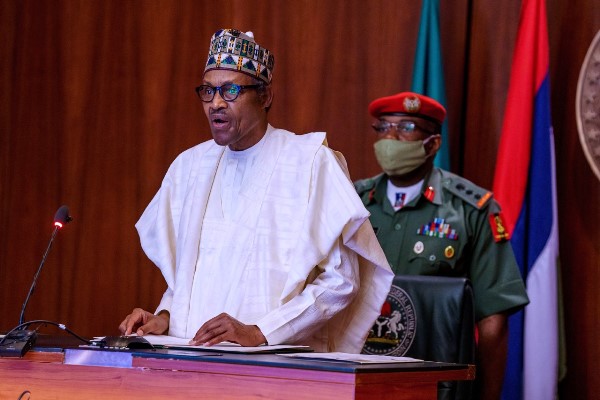
By Tanko Mohammed
The Fiscal Responsibility Commission (FRC), has Nigeria to utilise the ‘new borrowings’ in the 2021 budget for investment in key infrastructure development to stimulate economic growth.
Mr Victor Muruako, FRC Chairman said in Abuja on Thursday that the deficit in the budget is slightly above the three per cent threshold set by the FRA.
He, nevertheless, said that the borrowing was a positive action and the FRA Act made provision for exception to the three per cent rule.
“Sub-section 2 of that Section 12 of the same law goes further to state that the fiscal deficit can actually exceed the three per cent ceiling of the Gross Domestic Product (GDP).
“If in the opinion of the president there is a threat to national security or sovereignty of the country, you have to note that there is no law without exception to the rule.
“That Act made provision for exception to the rule; the borrowing will definitely galvanise the economy; it will increase the generation of Internally Generated Revenue (IGR).
“What the government should do is make the borrowing for key infrastructure development which will stimulate the economy for growth,” Muruako said.
He added: “This particular proposal by the president is one of those situations where borrowing is a positive act.
“What is important in this case is to ensure that the funds that will be borrowed are properly utilised.”
The chairman also reiterated that most government enterprises were in default of their obligations to the FRA 2007 and urged all heads of such organisations to endeavour to remit their operating surpluses to the government.
He said that non-remittance by agencies contributed to the delay in the release of funds for the budget.
“We are not talking about funds that are already somewhere. So the failure of some of these enterprises to pay in the operating surpluses over the years is part of the impact.
“The solution is simple; all hands should be on deck. All heads of government-owned agencies should know that we all owe it to our nation to do our best to ensure that we continue to remit what is due to the government.
“There is also need strategically to strengthen the government revenue base and there is need for greater commitment of citizens because government cannot release what they do not have,” he said.
Muruako also urged that the expectations of citizens must be in line with the availability of funds.
President Muhammadu Buhari, on Oct. 8, presented the N13.08 trillion 2021 budget to a joint session of the National Assembly for consideration.
He explained that the total aggregate revenue projected for the ‘Budget of Economic Recovery and Resilience’ was N7.86 trillion with a deficit of N5.2 trillion.
He said that of the N5.2 trillion, N4.28 trillion will be financed through borrowing; N2.14 trillion from domestic sources and the other N2.14 trillion from foreign sources.
Also, borrowings from multi-lateral and bi-lateral loan draw downs was put at N709.69 billion and privatisation proceeds put at N205.15 billion.
The president said that the country was still faced with the existential challenge of COVID-19 pandemic and its aftermath.
He added that the deficit provided a justification to exceed the threshold as provided for by Fiscal Responsibility Act (FRA) 2007.













